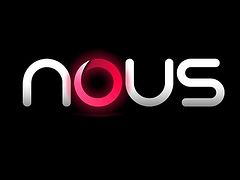Greek Mythology made the curiosity of Pandora the primary cause of suffering in the world. She fails to resist the lure of finding out what is in a box she is told to leave closed. Opening the box, she unleashes sorrow and suffering into the world. We humans are a curious lot. We want to know everything about our business and much about what is not our business. In a world that has deeply internalized the notion that everything is a democracy, we cannot bear hearing that not all knowledge is meant for us.
And I know such a man– whether in the body or out of the body I do not know, God knows–how he was caught up into Paradise and heard inexpressible words, which it is not lawful for a man to utter. (2Co 12:3-4)
We fail to understand that knowledge is an act of communion. In some measure, everything we “know” becomes a part of us, and in becoming a part of us, we are changed. We are injured not only through the experience in which we gain knowledge but through the continuing burden of the knowledge that now lives in us. Such knowledge often leaves us broken and burdened in need of healing and relief. The change wrought by some knowledge can come close to destroying the one who knows it.
We love knowledge. To be excluded from being “in the know” often leaves us feeling ashamed and angry. We trust ourselves with everything and find out to our dismay that somebody else’s business can be a terrible thing.
This is also true with the things of God:
For everyone who partakes only of milk is unskilled in the word of righteousness, for he is a babe. But solid food belongs to those who are of full age, that is, those who by reason of use have their senses exercised to discern both good and evil. (Heb 5:13-14)
The Biblical writer suggests that not everyone is ready for “solid food.” I have rarely met anyone who thought that the verse applied to them.
Valeria Alfeyeva, the mother of Met. Hilarion Alfeyev, wrote a very captivating spiritual novel, semi-autobiographical, Pilgrimage to Dhzvari. It relates the story of a woman coming to grips with faith in the waning days of the Soviet Union. She finds herself and her son at a monastery in Georgia that is in the process of being restored and rebuilt. The abbot is deeply insightful. I was struck in reading it when the abbot becomes very upset with her after learning that she has read St. Maximus the Confessor. He wonders if she can possibly be saved. Needless to say, she was completely taken aback. His advice to her was interesting: “You should read no more in a day than you pray.”
I marvel when I think of how many things of great depth I have read with little or no profit. Among my earliest purchases (during college) was all four volumes of the Philokalia. It was probably worse than useless. The same is true, sadly, of many people who quote the Fathers. They know who said what about this or that, but they have no regard for the actual state of their own heart. They easily become children playing with sharp knives, very likely to hurt themselves as well as others. I had a difficult conversation with a young man who was promoting the Rudder, the collection of the canon laws of the Church. I told him that I almost never read the canons, and keep my copy at home, away from prying eyes. When I need an answer about a canonical question, I call my bishop. That’s what bishops are for. But, all too easily, young prying eyes soon learn to judge bishops and priests and lead their hearts down a darkening path.
There are wonderful things that we do not know, that have, at present, been hidden from us. CS Lewis once said that if you met a saint in the fullness of their holiness, your instinct would be to fall down and worship them. That very thing happens on occasion in the Scriptures at the encounter of an angel. Many people long to see an angel, or to speak with a saint, but they fail to ask whether such a thing would be good for them.
Over the years I’ve become convinced that knowing a little is a good thing, if what you know is the right thing and in the right measure. I read less than I once did, and I read with far more selectiveness. I’ve noticed that some few books I read repeatedly with good effect.
Give thought to knowledge as communion. To what do you wish to unite yourself? What do you want to avoid? Alarmingly, you can have communion with television and movies – a very sobering thought. What have you read that has fed your soul more than any other? Why was that so? Are there patterns in your reading?
Knowledge is a terrible thing – in the original sense of the word.





